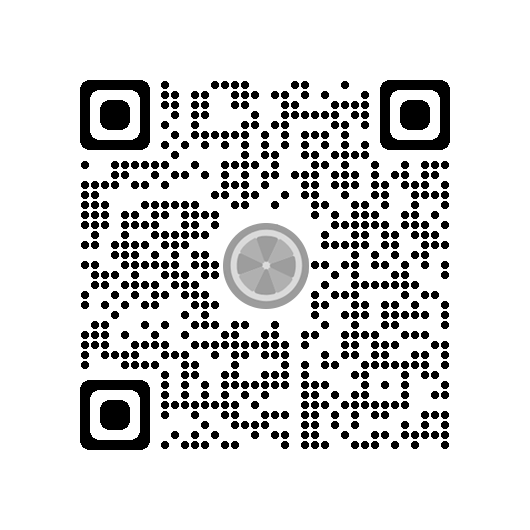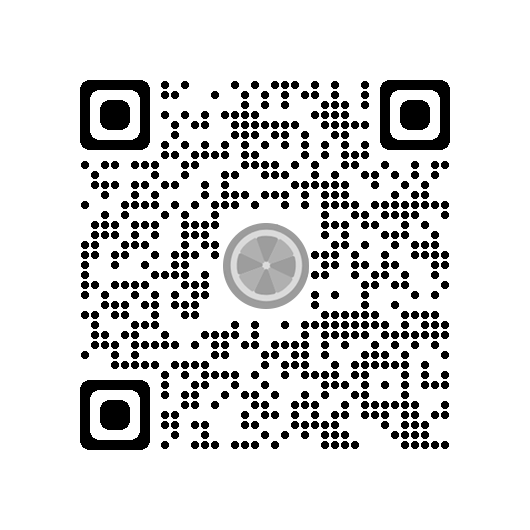Writing Academic Prose
Barry Mauer and John Venecek
We discuss the following topics on this page:
We also provide the following activities:
 Writing Guidelines
Writing Guidelines
Writing guidelines are standards for achieving consistency, clarity, and precision in your writing, which enables readers to better appreciate your ideas.
Your reader should not have to struggle with prose that is confusing, wordy, vague, or poorly structured. Use these guidelines to keep your writing strong and reader-friendly.
Writing Guidelines
- Use active voice sentences and avoid passive voice sentences.Active voice sentences have people doing things. They place the subject first and then the verb.
- “F. Scott Fitzgerald wrote The Great Gatsby,” is an example of an active voice sentence; “F. Scott Fitzgerald” is the subject and “wrote” is the verb.
- “The Great Gatsby was written by F. Scott Fitzgerald” is an example of a passive voice sentence.
Active voice sentences engage the reader. The subject and verb are closer together, which strengthens the logical connection between them. Passive voice sentences typically lead to wordiness. In the examples above, the passive voice sentence contains two extra words. Your sentences should be no longer than necessary to convey the required information; we don’t want readers to work more than necessary. Passive voice sentences are appropriate when the focus is on the object of the sentence. For example, we could say that a literary work “was released as a special edition.” In this example, we are not concerned with who released the special edition (which would be the subject of the sentence), but only that it was released. The most problematic passive voice sentences are those in which a subject is expected but is absent. For example, “The Great Gatsby was written” is a complete sentence but is inappropriate for a scholarly paper.
- Use logical connecting words to make the relationships of ideas clear to your reader. Logical connecting words include “because,” “since,” “therefore,” “although,” “however,” “thus,” “if . . . then,” “both . . . and,” “neither . . . nor,” and “from . . . to.”
- Avoid vague expletives (“It is,” “There are”). Such constructions create murky prose and make your reader work harder than necessary to understand your claims. Additionally, such constructions, usually placed at the beginning of sentences, lead to lengthy and weak sentences. Instead, start with the subject of the sentence (the person or thing doing the action) followed by an active verb.
- Don’t write: “It is obvious that there are many ways in which Zora Neal Hurston’s childhood impacted her writing.”
- Instead: “Zora Neal Hurston’s childhood impacted her writing in many ways.”
- Replace “to be” verbs (is, are, was, were, be, will be, etc.) with active verbs.
- Don’t write: “It is important to know that there is a lot of interest in this text from scholars.”
- Instead: “Scholars show significant interest in this text.”
- Avoid strings of prepositional phrases.
- Don’t write: “In light of evidence from the end of the eighteenth century about the process of printing, an improvement in technological means was occurring.”
- Instead: “Printing technology improved near the end of the eighteenth century.”
- Do not use “this” as a stand-alone pronoun to refer to the general sense of a prior sentence. “This” and “which” are adjectives, not pronouns. Using them as pronouns causes imprecision.
- Don’t write: “Fitzgerald wrote The Great Gatsby about a group of fictional characters, focusing on a millionaire (Gatsby) and his obsession with Daisy Buchanan in the Jazz Age. This (???) makes for a great meditation on the American Dream.”
- Instead: Follow “this” or “which” with a specific noun as in “This novel makes for a great meditation on the American Dream.”
- In American scholarship, periods and commas go inside end quotation marks, unless the quote is followed by a citation.
- Without citation
- Don’t write: “Edgar Allan Poe wrote more than just horror stories like ‘The Tell-Tale Heart’”.
- Instead: “Edgar Allan Poe wrote more than just horror stories like ‘The Tell-Tale Heart.’”
- With Citation
- Don’t write: “Edgar Allan Poe wrote more than just horror stories like ‘The Tell-Tale Heart.’” (Zeeber and Kooki, 2012)
- Instead: “Edgar Allan Poe wrote more than just horror stories like ‘The Tell-Tale Heart’” (Zeeber and Kooki, 2012).
Colons and semicolons go outside end quotation marks, unless they are part of the quotation.
- Do not use “their” when you mean “there” or “they’re.” Homonyms are words with the same sound but different spellings and meanings.
- Know how to properly format titles. Use quotation marks for titles of essays, short stories, songs, and shorter poems. Italicize the following: very long poems, book titles, movie titles, television series, comic strips, record album titles, magazines, and newspapers. The title of your own paper should not be in quotation marks. Do not put a period at the end of your title. If your paper’s title includes the title of another work, such as a novel or short story, be sure to italicize or use quotation marks, using the guidelines above.
- When referring to people, do not use the pronoun “that” when you mean “who.”
- Don’t write: “People that live in glass houses should not throw stones.”
- Instead: “People who live in glass houses should not throw stones.”
- Avoid comma splices. A comma splice joins two independent clauses (each of which can stand as a separate sentence), unconnected by a conjunction, with a comma.
- Don’t write: “Gatsby is a man given to obsession, he thinks about Daisy without stop.”
- Instead: replace the comma with either a semi-colon or a period, or you may simply add a conjunction (such as the word “and”) after the comma. “Gatsby is a man given to obsession; he thinks about Daisy without stop.”
- Avoid dangling modifiers. Modifiers, usually at the beginning of a sentence, must relate to the subject of the sentence or they will dangle.
- Don’t write:: “Expecting an important call, the telephone was always at Gatsby’s side.” Telephones don’t “expect.”
- Instead: “Expecting an important call, Gatsby stayed close to the telephone.”
- Sentence elements that are parallel in function should be parallel in grammatical form.
- Don’t write: “Gatsby liked to play and winning.” (Mixes an infinitive, “to play” and a present participle, “winning.”)
- Instead: “Gatsby liked playing and winning” or “Gatsby liked to play and win.”
- Substitute familiar for unfamiliar or archaic words.
- Don’t write: “Gatsby was not fully cognizant of the dangers.”
- Instead: “Gatsby was not fully aware of the dangers.”
Scholars should aim to write without reproducing sexist language and stereotypes. See this Guide to nonsexist language from the University of Arizona.
A collection of handouts about revising your prose can be found in the following link: The Paramedic Method[1]
 The Retyping Method
The Retyping Method
If the above instructions are too challenging, there is a shortcut. You can learn what good writing is through your fingertips. When Dr. Mauer was told by one of his professors that his writing was unacceptable, this professor provided valuable help; he rewrote the first two pages of Mauer’s paper in his own crystal-clear style and gave Mauer the following assignment: “Retype these two pages, exactly as I have written them, without thinking about it.”
Mauer felt, in his fingers, what it was like to write like a master! He could feel the rhythm of the complex sentences with their dependent clauses, the power of the active verbs, and the flow of the paragraphs. He grasped the placement of the thesis, the structure of the arguments, and the arrangement of the appeals. This assignment did more to help him learn the patterns of good writing than did all his other writing instruction.
We can learn the rules for punctuation, grammar, and structure, and still not know how to write effectively. Just learning the rules is not enough. We needed training to learn the right habits.
If you are struggling to write effective academic prose, do the following:
- Find a published academic essay, the best example of writing you can find in the scholarly literature. If you’re not sure what qualifies, ask your instructor.
- Retype the first two pages.
- Add the following statement: “I did not copy-and-paste this text; I typed all of it myself.” Sign your name.
- Share it with someone else (your instructor, if permitted).
You may find it a relief to get away from rules and from the pressure to be original. You are just copying.
If you think this exercise is a kind of cheating or even “plagiarism,” don’t worry; you are not claiming the model essay as your own. You are learning the proper style. The analogy is to a tennis student who learns a swing by copying a master (or having a master move the tennis student’s arm during the swing). All the theory and advice about playing tennis cannot replace the feeling of the swing itself.

 Writing Guidelines [Refresher]
Writing Guidelines [Refresher]
If you are using an offline version of this text, access the quiz for this section via the QR code.

 The Craft of Writing
The Craft of Writing
The basic skills involved in the craft of scholarly writing are to:
- Anticipate the reader’s need for information, explanation, and context
- Use logical connections between ideas
- Use appropriate, clear, and smooth transitions
- Use sophisticated sentences, appropriate word choice, and professional conventions of written English
The reader should be able to follow your writing without having to ask unnecessary questions about the meaning of a specialized term, the relation of ideas to one another, the identity of a character in a literary work, etc.
A reader should not have to struggle through prose that is vague or has weak sentence structure. No reader wants to confront technical errors such as poor grammar, misspellings, or misuse of punctuation. The best way to write for your reader is to imagine yourself in your reader’s position and anticipate the reader’s need for information. In other words, ask yourself questions while you read your work and try to answer them all. Ask other people to read your work and to indicate where they have unanswered questions. Then answer these questions in your writing.
 The Word “I”
The Word “I”
In literary research papers, there is no hard rule against using the word I unless your instructor makes it a rule. I can be unnecessary. You don’t need to write “I think,” for instance, because your reader assumes your words are your thoughts.
You don’t need to tell us the story of your research process unless doing so is particularly relevant. For instance, if you struggled to obtain a document, and that story is worth telling, you can explain what happened using I. It is better to use the word I if avoiding it would make your prose awkward. For example, if you are describing your own experience with a text (ex.: “I first read The Great Gatsby in high school”), writing “One first read The Great Gatsby in high school” is not going to work.
John Horton explains when using I can be not only appropriate but also a good thing.[2]
Writing with the first person ‘I’ can be good for:
- Making a connection between you and the reader, making your writing engaging, affecting and accessible
- Helping you to become more self-aware (or ‘reflexive’) about your decisions, reasoning and ways of working as a researcher
- Disclosing how you are moved, troubled or transformed by research activities, participants, encounters and contexts (Widdowfield, 2000)
- Being more honest and transparent about the messy process of doing (or trying/failing to do) research
- Recognising, disclosing and critically reflecting upon how your identity, background, norms and assumptions (your ‘positionality’) invariably affect research encounters, data and outputs (Rose, 1997)
- Subverting norms of academic writing, acknowledging that you are not an all-knowing, all-seeing, all-confident, neutral, authoritative expert by writing ‘vulnerably – i.e. not as the objective master of all you survey but as someone in the thick of things, experiencing clarity, confusion, joy, boredom, pain and more’ (Crang and Cook, 2007: 175–6)
- Acknowledging the complex processes and encounters involved in any research, and thinking about where (and how) you stand amongst the many interconnected participants, events, bodies, spaces, materialities, discourses, power relations and inequalities that constitute any research setting
- Thinking about how you, as a researcher, have distinctive ethical responsibilities and a duty of care towards research participants
- Developing your own style of writing – or related creative practice – that allows some of your personality, positionality, cares, enthusiasms, culture, community and politics to become more fully part of your work
- And creating a context where others feel able to do some or all of the above.
For more advice and information on Style Guides, click on the following link from The Purdue Online Writing Lab:
If you are using an offline version of this text, access the quiz for this section via the QR code.

- Includes overviews of the following: The “Paramedic Method” Modified from Lanham, R (2007). Revising Prose, 5th ed, Five Characteristics of Academic and Bureaucratic Prose Adapted from Technical Editing for Scientists, Bruce Jaffee http://jaffeerevises.com/index.htm, Guidelines for Revising Scientific and Technical Prose (modified from materials at The Center for Communication Practices at Rensselaer Polytechnic Institute, Phil Druker’s University of Idaho class and IY Hashimoto’s Whitman College Writing Center) ↵
- Horton, J. (2021). Centring reflexivity, positionality and autoethnographic practices in creative research. In N. von Benzon, M. Holton, C. Wilkinson, & S. Wilkinson (Eds.), Creative Methods for Human Geographers SAGE Publications Ltd. https://uk.sagepub.com/en-gb/eur/creative-methods-for-human-geographers/book266074 ↵

